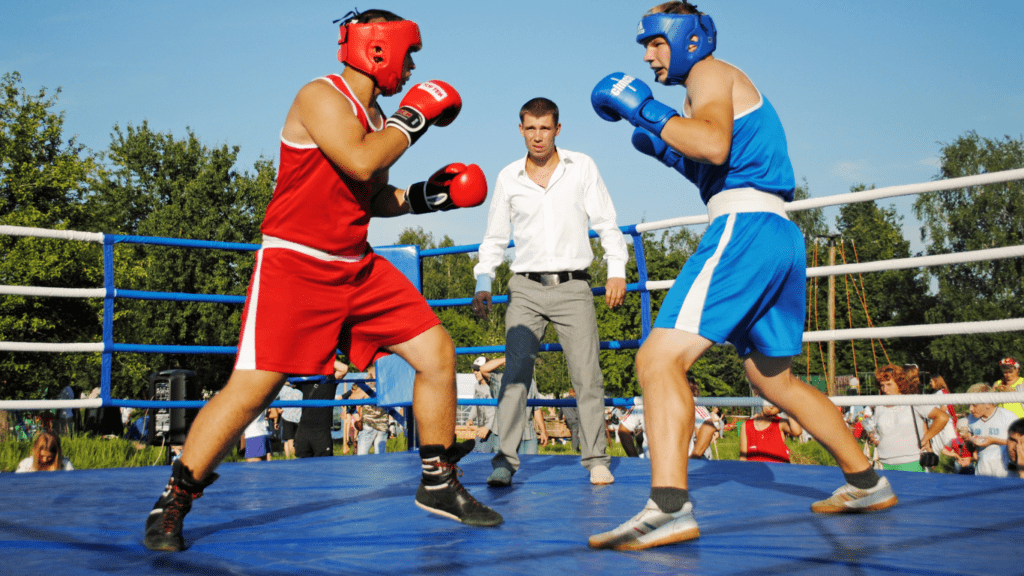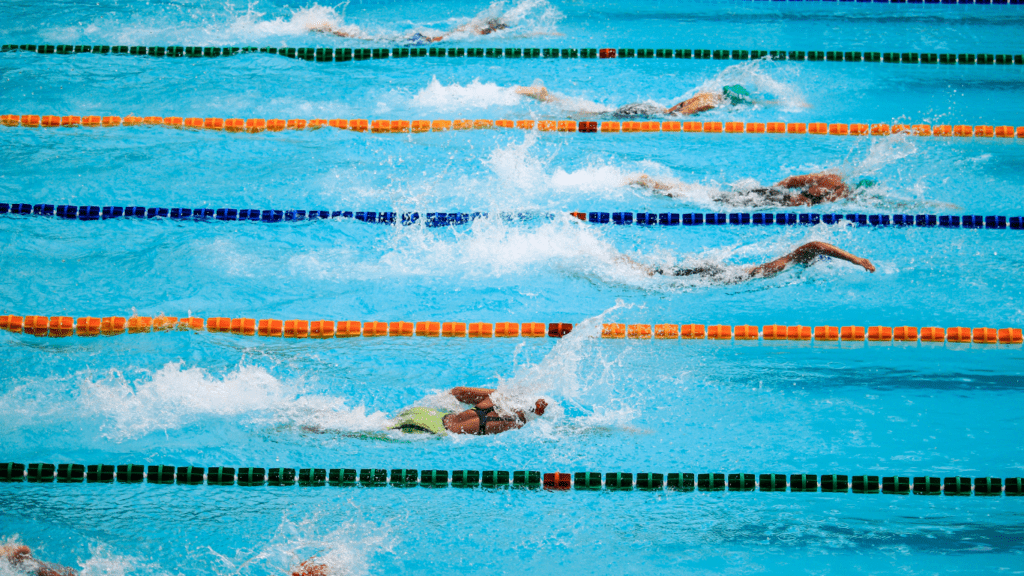Defining Sports Legends
Sports legends transcend the boundaries of their games. They don’t just excel in statistics and records; they leave a lasting legacy on and off the field. Athletic prowess, coupled with unmatched dedication, sets these individuals apart. Figures like Muhammad Ali and Michael Jordan showcase this balance perfectly.
- Notable Achievements: Key milestones elevate athletes to legendary status. Muhammad Ali’s three-time World Heavyweight Champion titles and Michael Jordan’s six NBA Championships are prime examples. Achievements like these become benchmarks in sports history.
- Inspiration and Influence: Sports legends inspire generations. Muhammad Ali stood for social justice, using his platform to tackle racial inequality. Michael Jordan, with his relentless drive and “never-quit” attitude, motivates aspiring athletes globally. These icons impact society, not just within the realms of their sports.
- Consistency and Longevity: Long-term success distinguishes legends. Consistent top-tier performance over extended periods marks true greatness. Jordan’s two MVP awards and Ali’s 56 wins over 21 years depict sustained excellence.
- Character and Integrity: Beyond skills, sports legends exude character. Ali’s refusal to fight in the Vietnam War, sacrificing his titles for his beliefs, showcases immense integrity. Legends often stand for values beyond their sport.
- Universal Recognition: Recognized globally, sports legends breach cultural and geographical barriers. Jordan’s brand and Ali’s international influence make them household names worldwide. This universal acclaim cements their legendary status.
- Defining Moments: Iconic moments define legacies. Jordan’s “The Shot” and Ali’s “Rumble in the Jungle” are etched into sports folklore. These moments are not just victories but narratives that resonate with fans eternally.
Respecting legacy, embodying character, achieving consistently, and inspiring widely, sports legends captivate us. Their stories enrich sports history, providing benchmarks for excellence and pillars of inspiration.
Criteria for Greatness
Identifying sports legends involves evaluating specific attributes that distinguish them from others. Several criteria contribute to defining true greatness.
Skill and Talent
Skill and talent represent the foundation of any sports legend. Exceptional athletes exhibit extraordinary abilities that set them apart. For instance, Michael Jordan’s aerial prowess and scoring skills made him a basketball icon. Lionel Messi’s dribbling and playmaking capabilities demonstrate his unparalleled soccer talent. These athletes possess innate abilities and refine them through relentless practice and dedication.
Achievements and Records
Achievements and records are tangible indicators of greatness. Icons like Serena Williams and Usain Bolt hold numerous records that solidify their legendary status. Williams’s 23 Grand Slam titles in tennis exemplify her dominance in the sport. Bolt’s world records in the 100m and 200m sprints highlight his extraordinary speed and endurance. Such accomplishments not only set new benchmarks but also inspire future generations.
Impact on the Sport
Impact on the sport goes beyond individual performance. Legends influence how the game is played, perceived, and appreciated. Muhammad Ali’s charisma and advocacy reshaped boxing and brought attention to social issues. Similarly, Michael Jordan’s presence boosted the global popularity of basketball, expanding its reach and commercial success. Icons like these leave lasting imprints that shape the sport’s culture and future directions.
By scrutinizing these criteria, I can appreciate what truly makes an athlete a sports legend.
Legendary Athletes by Sport

In this section, I highlight legendary athletes in various sports who have raised the bar through their remarkable achievements and contributions.
Soccer: Pelé and Maradona
Pelé, born Edson Arantes do Nascimento, is a three-time FIFA World Cup winner. He scored 1,281 goals in 1,363 games, setting an unmatched record for the beautiful game. Pelé’s influence extends to promoting soccer globally, making him an ambassador for the sport.
Diego Maradona, known for his extraordinary skill and infamous “Hand of God” goal, led Argentina to victory in the 1986 World Cup. With 259 goals in 491 club matches and memorable dribbles, Maradona left an indelible mark on soccer history.
Basketball: Michael Jordan and LeBron James
Michael Jordan, often regarded as the greatest basketball player, won six NBA Championships with the Chicago Bulls. His career averages of 30.1 points per game and pivotal moments like “The Shot” underscore his legendary status.
LeBron James, a four-time NBA champion, has amassed over 35,000 career points and is recognized for his:
- versatility
- leadership
His ability to impact the game in scoring, defense, and playmaking sets him apart in basketball history.
Tennis: Serena Williams and Roger Federer
Serena Williams has revolutionized women’s tennis with 23 Grand Slam singles titles. Her powerful serve and relentless drive have made her a dominant force, inspiring a new generation of players.
Roger Federer, with 20 Grand Slam titles, embodies grace and skill on the court. His rivalry with Rafael Nadal and enduring excellence have brought unparalleled attention to tennis, making him a global icon.
Boxing: Muhammad Ali and Mike Tyson
Muhammad Ali, a three-time World Heavyweight Champion, combined unmatched skill with social activism. Known for his fights like “The Rumble in the Jungle,” Ali’s legacy extends beyond boxing, influencing civil rights and global culture.
Mike Tyson, one of the most formidable boxers, became the youngest Heavyweight Champion at 20. Known for his knockout power, Tyson’s 50-6 record with 44 KOs highlights his dominance in the ring.
Swimming: Michael Phelps and Mark Spitz
Michael Phelps is the most decorated Olympian with 23 gold medals. His versatility in strokes and endurance redefined swimming, setting numerous world records.
Mark Spitz, a nine-time Olympic gold medalist, set the standard with seven golds at the 1972 Munich Games. His achievements in freestyle and butterfly events made him an early icon in swimming history.
Underdog Stories
Competition often showcases unexpected heroes. Extraordinary stories of triumph against the odds are etched in sports history.
Rise from Obscurity
Certain athletes emerge from humble beginnings to achieve legendary status. One notable example is Michael Jordan, who was once cut from his high school basketball team but later became a six-time NBA champion. Similarly, Lionel Messi, diagnosed with a growth hormone deficiency, overcame his condition to become one of the greatest soccer players. These stories inspire fans globally, illustrating that determination and perseverance can lead to greatness regardless of initial setbacks.
Memorable Upsets
Sports history is rich with memorable upsets where underdogs defied expectations. The 1980 “Miracle on Ice” saw the US ice hockey team, composed mainly of college players, defeat the seasoned Soviet Union team to win the Olympic gold. Another iconic upset occurred when Buster Douglas knocked out Mike Tyson in 1990, defeating the then-undefeated heavyweight champion. These moments captivate audiences and remind us that nothing is impossible, even when the odds seem insurmountable.
Female Sports Legends
Female athletes have significantly shaped sports history through their exceptional performances and breaking societal barriers. Here, I celebrate their remarkable contributions.
Breaking Barriers
Female sports legends have shattered numerous barriers in traditionally male-dominated fields. Billie Jean King, for instance, defeated Bobby Riggs in the iconic “Battle of the Sexes” in 1973, proving women’s competitive capabilities. Similarly, Jackie Joyner-Kersee excelled across multiple events in track and field, securing six Olympic medals, including three golds. These moments not only highlighted their talents but also challenged gender norms in sports.
Pioneers and Icons
Pioneering female athletes such as Althea Gibson and Wilma Rudolph blazed trails for future generations. Gibson broke racial barriers by becoming the first African American to win a Grand Slam title in tennis, capturing the French Open in 1956. Rudolph overcame polio as a child to win three gold medals in track and field at the 1960 Rome Olympics. Modern-day icons like Serena Williams have continued this legacy. Williams, with 23 Grand Slam singles titles, revolutionized women’s tennis and inspired countless young athletes. These pioneers and icons demonstrate the enduring impact of female sports legends.
Cultural Impact of Sports Legends
Sports legends have shaped cultures around the world by transcending their athletic achievements.
Influence Beyond the Field
Sports legends like Muhammad Ali and Michael Jordan aren’t just famous for their prowess. Their influence extends into societal issues, activism, and philanthropy. Ali’s stand against the Vietnam War and support for civil rights movement positioned him as a symbol of resistance and justice. Jordan’s investment in various educational and health projects showcases his dedication to community upliftment. These legends inspire social change, leveraging their platforms to address critical issues.
Endorsements and Media Presence
Sports legends wield significant power in brand endorsements and media. Michael Jordan’s partnership with Nike revolutionized sports marketing, creating the iconic Air Jordan line and redefining athlete endorsements. Similarly, Serena Williams’s endorsements span tech and fashion, reflecting her versatile appeal. These athletes dominate media landscapes, influencing consumer behavior and brand preferences. Their media presence, whether in advertisements or social platforms, amplifies their cultural impact, making them household names.


 Pedro Brandon played a crucial role in developing the content strategy for Bet Roll Gamble, ensuring the platform offers timely, accurate, and engaging insights across sports betting, poker, horse racing, and esports. His ability to identify trends and curate relevant content has helped attract a diverse audience, providing bettors with the strategies and updates they need to stay competitive.
Pedro Brandon played a crucial role in developing the content strategy for Bet Roll Gamble, ensuring the platform offers timely, accurate, and engaging insights across sports betting, poker, horse racing, and esports. His ability to identify trends and curate relevant content has helped attract a diverse audience, providing bettors with the strategies and updates they need to stay competitive.